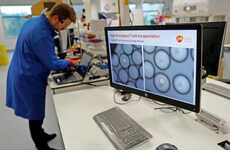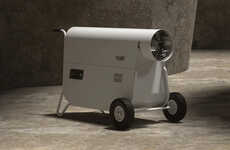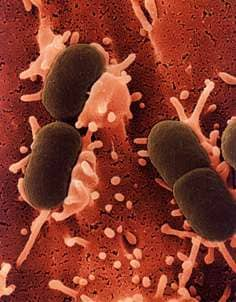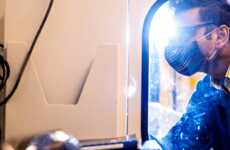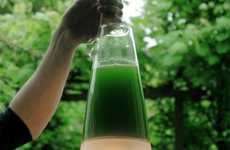
LS9 Genetically Engineered E. Coli Poops Biodiesel
Katie Cordrey — February 4, 2010 — Eco
San Francisco, California-based biofuel startup LS9 modifies E. Coli microbes, a bacteria commonly found in feces, to convert some of its natural excretions into biodiesel. The University of California at Berkeley and the U.S. Department of Energy’s Joint BioEnergy Institute (JBEI) assisted in the research of this bacteria biofuel.
The research may lower the cost of making biodiesel from wood chips, corn stalks, and other agricultural waste products because it can use the bacteria as digesters that ‘poop’ biofuel.
The gallery shows several views of E.Coli bacteria.
The research may lower the cost of making biodiesel from wood chips, corn stalks, and other agricultural waste products because it can use the bacteria as digesters that ‘poop’ biofuel.
The gallery shows several views of E.Coli bacteria.
Trend Themes
1. Genetically Engineered Organisms - LS9's genetically engineered E. Coli bacteria highlights the trend of using modified organisms to produce biofuels and other renewable resources.
2. Microbial Fuel Production - The utilization of E. Coli bacteria for biofuel production illustrates the trend of using microbes to generate renewable energy and reduce waste in a sustainable manner.
3. Agricultural Waste Conversion - The use of E. Coli bacteria to 'digest' agricultural waste products (such as wood chips and corn stalks) in order to create biodiesel exemplifies a trend towards more environmentally-friendly and cost-effective methods of waste conversion.
Industry Implications
1. Biotechnology - The development of genetically engineered E. Coli bacteria for use in biofuel production presents opportunities for the biotech industry to expand and innovate in the field of renewable resources.
2. Biofuel Production - The conversion of organic waste materials into biofuel using E. Coli bacteria is a disruptive innovation opportunity for the biofuel production industry and could have significant cost and environmental benefits.
3. Waste Management - The use of E. Coli bacteria to 'digest' agricultural waste products and produce biodiesel is an opportunity for the waste management industry to develop more sustainable and efficient waste conversion methods.
1.9
Score
Popularity
Activity
Freshness


